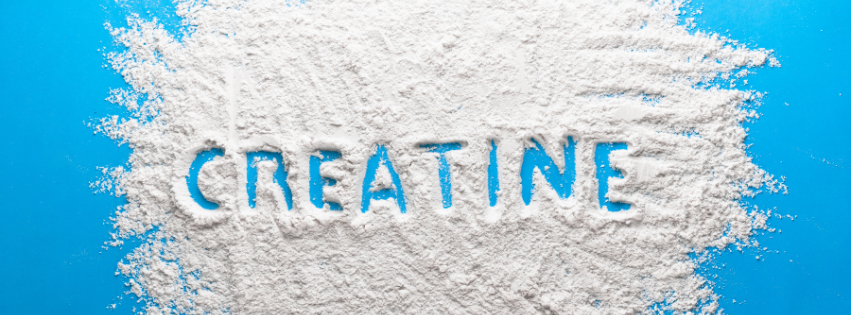
Why Creatine Should Be A Core Part Of Your Daily Health Stack
BALA BITES: CREATINE IS HAVING A MOMENT
Creatine isn’t new.
It's been studied for over a century. It's one of the most researched supplements out there. In fact, there are over 1,000 studies on creatine.
Yet despite this, creatine still has a reputation problem. Most people still think it's only for bros who live in the gym.
The truth?
Creatine might be one of the most underrated health interventions available. For both males and females. Young and old.
Creatine helps muscle recovery. But also brain health. Mood. Sleep. Energy metabolism. Even your aging process.
Here's why creatine deserves a chance at a spot in your stack.
WHAT IS CREATINE?
Creatine is a molecule made in your body from three amino acids—glycine, arginine, and methionine. It’s synthesized in your liver, kidneys, and pancreas and stored mostly in your muscles.
This is why creatine is most associated with improving strength, power and muscle mass. But something super interesting happens once those muscle stores are full.
The overflow of creatine starts supporting other tissues—your brain, bones, and immune cells. That’s where the magic extends beyond the gym.
WHY CREATINE MATTERS
Your natural production of creatine decreases with age. Plus, we know that muscle mass declines with age. Adults over 40 years old can lose ~0.5-1% of muscle mass per year in the absence of countermeasures. That loss rate only accelerates in your 50s and 60s.
Less muscle means you become frail quicker as you age and your metabolic health isn't as strong.
Creatine helps you retain muscle mass as you age and get the most benefit from workouts.
Beyond the muscle benefit, short-term creatine supplementation has been shown to significantly improve memory and cognitive performance in older adults.
It also supports mood, which is particularly helpful for people struggling with low energy or depressive symptoms.
And if you’re sleep-deprived, creatine has been shown to reverse some of the cognitive deficits associated with poor sleep.
A single 25–30g dose of creatine didn’t just undo the cognitive decline from 21 hours without sleep—it actually boosted brain performance beyond that of someone fully rested.
This stuff can perform magic at a low cost with little downside.
HOW TO TAKE IT
The standard recommendation is to take 5 grams of creatine monohydrate daily. Creatine monohydrate is the most common, available and cost-effective form of creatine.
You get about 2 grams of creatine per pound of red meat but most people don’t eat that much meat consistently so there's little reason to worry about overindexing due to diet. Supplementing just makes it easy to get a beneficial amount.
I try to take my creatine post-workout for optimal absorption and impact. I like to cycle off every month or two for a week but most of the literature says you don't need to. I just like to.
As for long-term use, there are 5 year studies that found no significant adverse effects from creatine supplementation on kidney or liver function in healthy individuals. Potential side effects are minimal too. The most common, but still rare, is instances of gastrointestinal discomfort.
I recommend Momentous and buy that exclusively because of its rigorous third-party testing. Momentous doesn't just say "3rd party tested" with no reference to the organizations that did the testing (it's a common trick in the supplement world). Momentous actually names the organizations that do the testing and they are top tier. If I am going to take it regularly, I want to know I sourced the highest quality creatine.
I enjoy mixing my creatine in water with electrolytes and always try to drink it around some kind of physical activity.
THE BOTTOM LINE
Creatine stands out for everyone. Males. Females. Young. Old.
✔ Excellent safety profile
✔ Well-established performance benefits
✔ Metabolic advantages
✔ Growing cognitive and mood support
✔ Extremely affordable from reliable sources
Creatine is an easy win-win for your body and mind.
KEY TAKEAWAYS
- While traditionally known for muscle recovery, creatine benefits extend far beyond the gym.
- Adding creatine for brain health and energy metabolism could be a simple upgrade to your daily supplement routine.
- Recent research connects creatine for longevity with better cellular function and reduced oxidative stress.
FURTHER READING
Want more insights like this? Sign up for Bala Bites and get a curated compilation of insights delivered every other week to your inbox
Know why Pecorino Romano is a longevity cheese? Read why science considers it to be the healthiest cheese on the planet
Intrigued by personalized nutrition? Begin with the Symptom Solver Quiz